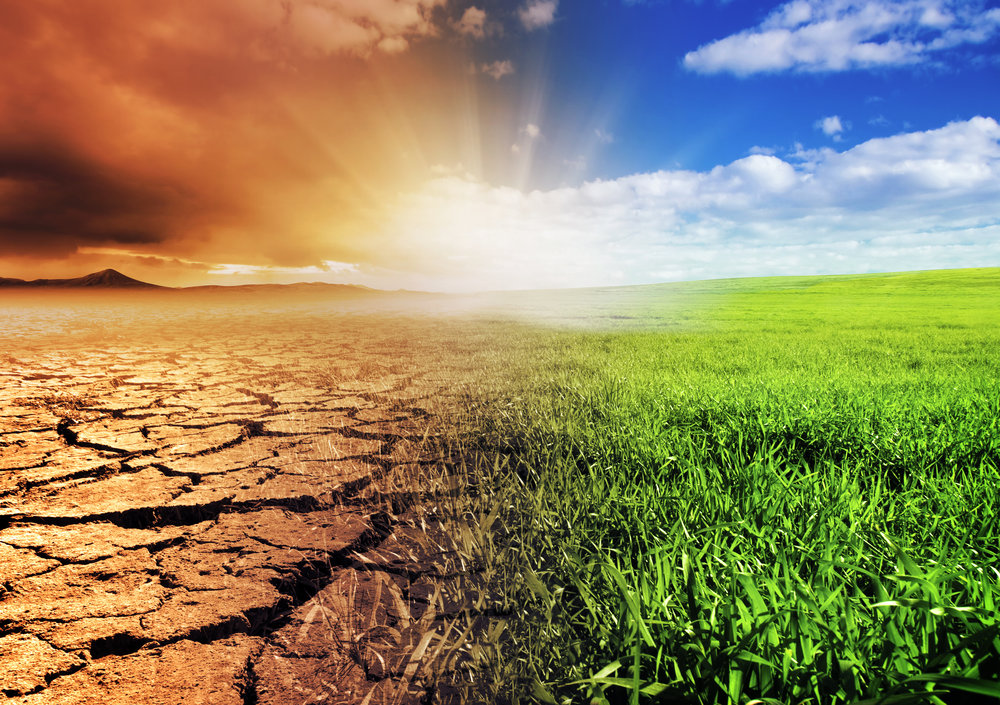Dr. Seema Javed
 Major oil, coal and gas companies could be held legally responsible for the climate change damages caused by their carbon emissions, according to a study led by Oxford University researchers, published in the journal Nature Climate Change today , on Monday 28 June.
Major oil, coal and gas companies could be held legally responsible for the climate change damages caused by their carbon emissions, according to a study led by Oxford University researchers, published in the journal Nature Climate Change today , on Monday 28 June.
Climate change is increasingly a subject for legal action – there have been 1,500 climate-related lawsuits worldwide, including a case last month where a Dutch court last month ordered Shell to cut its emissions, and a German constitutional court ruling in April that the country’s climate law was inadequate.
While lawsuits to force emission cuts have begun to succeed, attempts to sue carbon polluters for the damages caused by their emissions have largely failed – but recent scientific advances mean they have a growing chance of success.
Up to now plaintiffs haven’t demonstrated that polluters’ actions can be linked with specific climate events. But attribution science allows scientists to calculate how emissions contributed to specific events like storms, droughts, heatwaves or floods. For example, recent research found that human-caused sea-level rise increased the damages suffered when Hurricane Sandy hit the US East Coast, in 2012, by $8.1 billion. Another study found that climate change was responsible for $67 billion of the damage caused by Hurricane Harvey, which hit Texas in 2017.
Combining this scientific analysis with data on emissions, plaintiffs can potentially now quantify the responsibility of individual fossil fuel companies for their losses. For example, previous research calculated the proportion of temperature increase and sea-level rise that can be attributed to emissions from individual companies, including ExxonMobil, Chevron, Shell and Saudi Aramco.

Dr Friederike Otto, Associate Director of Oxford’s Environmental Change Institute, says, “in order to change the fate of the vast majority of climate litigation, courts and plaintiffs alike have to realize that science has moved on from ascertaining that climate change is potentially dangerous to providing causal evidence linking emissions to concrete damages.’
Plaintiffs have so far not used the latest attribution science, according to the researchers. The study reviewed 73 cases against carbon polluters across 14 jurisdictions, finding that “plaintiffs have provided inadequate evidence on causation” but that “improved scientific evidence has a clear role to play if the courts are to accept causal arguments in future lawsuits.”
The threat of successful legal action against carbon polluters could weaken the business case for existing and proposed polluting infrastructure like coal mines, oil and gas wells, pipelines and fossil fuel power plants. Victims of climate change impacts could have a route to compensation as well.
Existing obstacles to the success of climate-related lawsuits can be overcome with the use of recently-developed lines of scientific evidence, according to a new study from the Oxford Sustainable Law Programme and Environmental Change Institute, University of Oxford.
Filling the evidentiary gap in climate litigation will publish on 28.06.21 in Nature Climate Change, a leading interdisciplinary science journal, and is the first global study on the use and interpretation of climate-science evidence in lawsuits.
It assesses 73 lawsuits across 14 jurisdictions and finds that the evidence submitted by the litigants lags significantly behind the state-of-the-art in climate science, impeding claims that greenhouse-gas emissions have caused the impacts suffered by plaintiffs.
The majority of cases did not quantify the extent to which climate change was responsible for the climate-related events causing the impacts affecting plaintiffs, an important line of evidence since not all events occur due to climate change. Fewer still provided quantitative evidence linking defendants’ emissions with the plaintiffs’ injuries. 73% of cases did not refer to peer-reviewed evidence. And 26 claimed that weather events occurred due to climate change, without providing any evidence.
Professor Thom Wetzer, Founding Director of the Oxford Sustainable Law Programme, says, ‘Holding high-emission companies accountable for their contribution to climate change is key to driving systemic change and to protecting those most vulnerable to climate change impacts. Climate litigation aimed at generating that accountability is on the rise, but the results have been mixed.
Our research provides reason for optimism: with rigorous use of scientific evidence, litigators have room to be more effective than they currently are. It is now up to litigators to translate state-of-the-art science into high-impact legal arguments.’
The findings make clear the vital importance of cutting-edge, peer-reviewed attribution science, which can provide exactly this kind of evidence and thus help prove causation. This would allow lawyers ascertain the prospects of successful litigation before cases reach court.
Plaintiffs have brought over 1,500 climate-related lawsuits worldwide, with the rate of claims being made increasing. High-profile cases such as Native Village of Kivalina v. ExxonMobil Corp, which was dismissed at the U.S. Court of Appeals, have shown how strong evidence of causation is critical to successful litigation.
Attribution science has recently been used to prove the impact of man-made climate change on extreme weather events like Hurricane Harvey.
Also Read : Currency plunging Lebanese worried
Also Read : Over 1 million deaths was avoidable
As well as providing better evidence, attribution science can also inform the decision to pursue climate litigation cases, with uncertainties around some types of events (like droughts) being much higher than others (e.g. large scale extreme rainfall).
The authors call for greater awareness and use of cutting-edge attribution science when bringing climate litigation cases for court.
“Effective use of climate-science evidence in the courts could overcome existing obstacles to causality, set legal precedent for demonstrating causality with climate-science evidence, and make successful litigation on climate-change impacts feasible,” they state.
Rupert Stuart-Smith, lead author of the study says, ‘In recent weeks, successful lawsuits in the Netherlands, Germany, and elsewhere have seen courts demand countries and companies dramatically strengthen their climate targets. The power of climate litigation is increasingly clear.
‘However, many climate-related lawsuits have been unsuccessful. If litigation seeking compensation for losses suffered due to climate change is to have the best chance of success, lawyers must make more effective use of scientific evidence. Climate science can answer questions raised by the courts in past cases and overcome hurdles to the success of these lawsuits.’
 Jubilee Post News & Views
Jubilee Post News & Views




